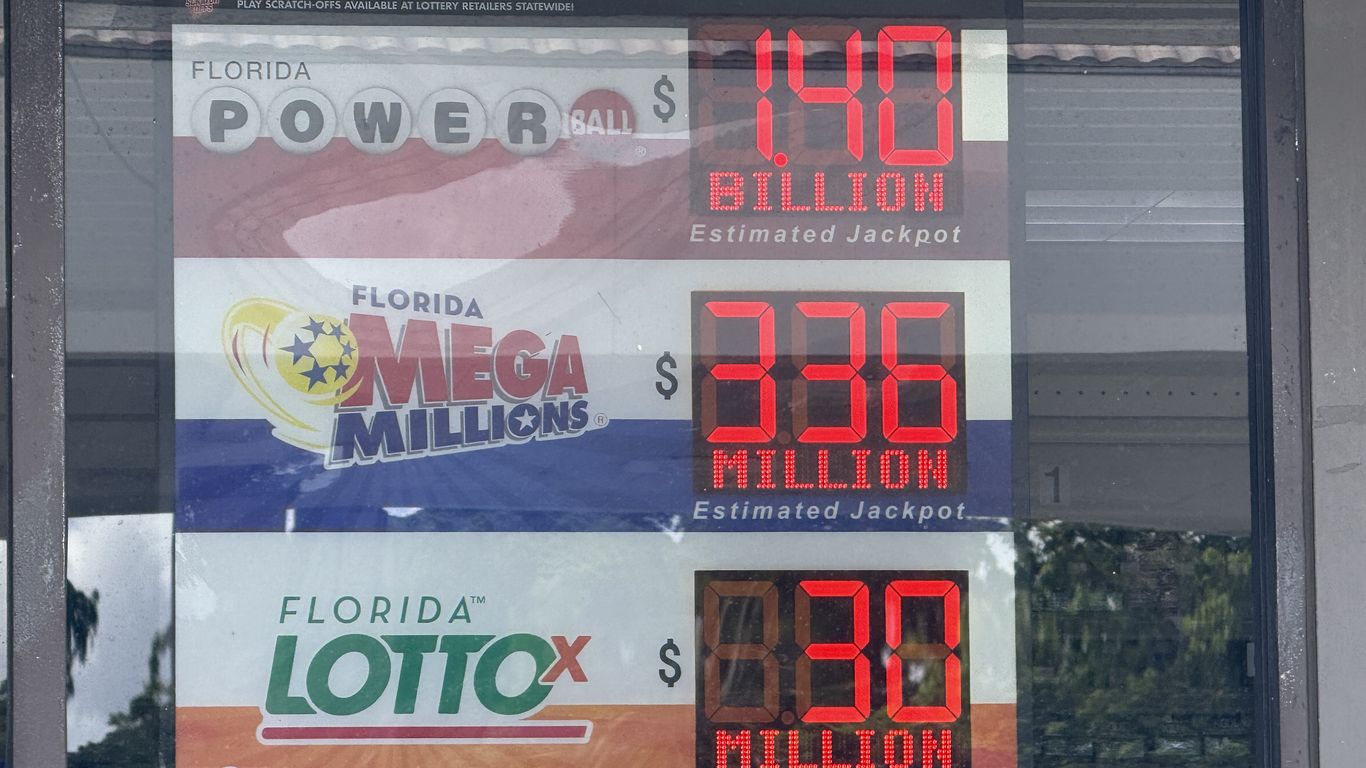Powerball Jackpot: Lump Sum or Annual Payments?

Introduction
The Powerball jackpot is a highly coveted prize, with the potential to change one's life forever. However, with great fortune comes great responsibility. Winners are faced with the decision to take a lump sum or annual payments. The latter, according to an accountant, is a "safe bet."
Key Details
Saturday's Powerball grand prize is estimated to be the second-biggest in U.S. history, second only to the record-breaking $2.04 billion jackpot won in 2022. This jackpot has the potential to transform the lives of the lucky winner, yet it also comes with its own set of challenges. Opting for the lump sum may seem like a tempting choice, but it can also be a dangerous one. Winners often struggle with managing their newfound wealth, leading to potential financial troubles down the line.
Impact
While taking the annual payments may not seem as exciting as a large lump sum, it provides a more sustainable and secure approach to managing such a massive amount of money. An accountant can help guide winners in making the best financial decisions to ensure long-term financial stability. With proper planning and management, the annual payments can provide the winner with a steady and comfortable stream of income for years to come.
About the Organizations Mentioned
U.S. History
The term "U.S. History" typically refers to the study and exploration of the historical events, figures, and cultural developments within the United States, rather than a specific organization. However, organizations like the **Independence Hall Association** (ushistory.org) and the **American Historical Association (AHA)** play significant roles in promoting and preserving U.S. history. ## Overview of U.S. History Organizations 1. **Independence Hall Association (ushistory.org):** This organization provides resources and educational materials for learning about U.S. history, particularly focusing on high school courses and general history enthusiasts. It is associated with Independence Hall in Philadelphia, a significant historical site in American history[1]. 2. **American Historical Association (AHA):** The AHA is the largest membership association of historians globally, serving as a hub for historical research, careers, and public engagement. It supports historians across various specializations and eras, offering resources like job listings and conference opportunities[2][3]. ## Key Aspects and Achievements - **Promotion of Historical Education:** Organizations like ushistory.org and the AHA contribute significantly to the dissemination of historical knowledge, making it accessible to a broad audience. - **Career Development:** The AHA provides essential career resources for historians, including job listings and professional networking opportunities. - **Public Engagement:** By promoting historical thinking in public life, these organizations help foster a deeper understanding of the past and its relevance to contemporary issues. ## Current Status Currently, these organizations continue to play vital roles in preserving and promoting U.S. history. The AHA remains a leading voice in the historical community, while ushistory.org maintains its focus on educational content. ## Notable Aspects - **Digital Resources:** Many organizations now offer digital platforms and resources, making historical information more accessible than ever. - **Interdisciplinary Collaboration:** The integration of historical perspectives with other fields like technology and business highlights the growing importance of interdisciplinary approaches in understanding historical contexts and
World Health Organization
The World Health Organization (WHO) is a specialized agency of the United Nations, established in 1948, with a mandate to promote global health, coordinate international responses to public health threats, and set standards for health policies and interventions[2]. Headquartered in Geneva, Switzerland, WHO operates in over 150 countries, working with governments, NGOs, and other partners to advance health equity, strengthen health systems, and respond to health emergencies. ## What WHO Does WHO’s core activities include monitoring global health trends, setting international health standards, providing technical assistance to countries, and serving as a forum for scientific and policy discussions on health issues[2]. The organization publishes influential reports such as the annual **World Health Statistics**, which tracks progress toward Sustainable Development Goals (SDGs) and provides a global “health report card”[1][8]. WHO also maintains the Model List of Essential Medicines, guiding countries on which drugs are most critical for public health[7]. In addition, WHO leads global campaigns on issues ranging from infectious disease eradication to noncommunicable diseases (NCDs), maternal and child health, and health emergencies[2][6]. ## History and Key Achievements WHO’s history is marked by landmark achievements, including the eradication of smallpox, near-eradication of polio, and the development of an Ebola vaccine[2]. The organization played a pivotal role in responding to the COVID-19 pandemic, coordinating global research, vaccine distribution, and public health guidance. In May 2025, WHO member states adopted the world’s first **Pandemic Agreement**, a historic step to improve international coordination and equity in future health crises[4]. WHO also spearheads initiatives like the Triple Billion Targets (healthier lives, universal health coverage, and protection from health emergencies) and technical policy packages targeting tobacco, alcohol, salt, and trans fat reduction[1][2]. ## Current Status and Notable Aspects WHO is currently implementing its **Fou















